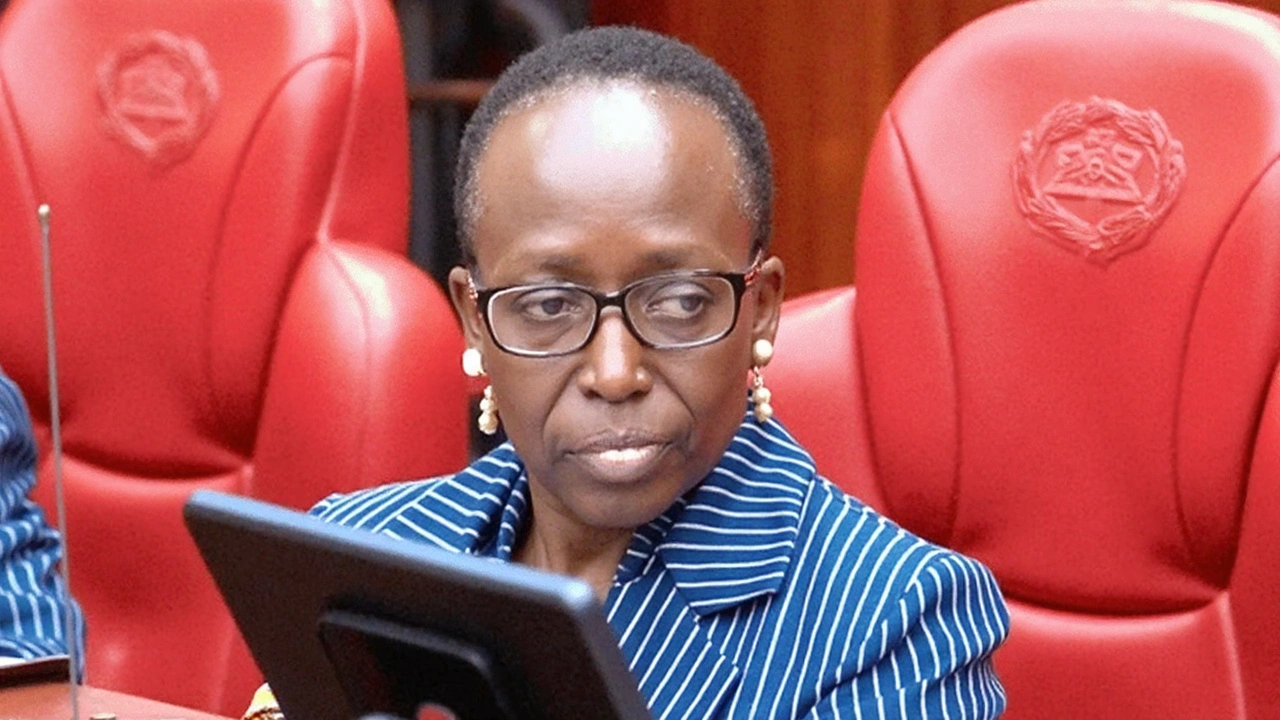Ballooning Fines for Idle Loans and Missed Deadlines
Kenya’s budget is already under a lot of pressure, but it just got worse. Over the past four years, the country has forked out a staggering Ksh6.6 billion just in penalties connected to foreign loans that never left the bank and late payments on big projects. Auditor General Nancy Gathungu’s latest report pulls no punches—these losses are completely avoidable and add fuel to the country’s debt worries.
The single biggest leak in this financial bucket comes from what’s called "commitment fees." This isn’t some rare, technical glitch; it simply means Kenya agreed to take out loans for projects then failed to actually use the cash. For 2023/2024, auditors looked at 14 big infrastructure and development projects set to receive Ksh515.1 billion. Shockingly, Ksh304.4 billion—or nearly 60%—of that money sat idle. The result? A punishing Ksh1.6 billion bill just for not using what was borrowed. That’s on top of Ksh1.4 billion in similar fees the year before.
It’s not a new problem, either. Across four years, the pattern repeats: government departments secure ambitious funding, sign contracts, then stall, letting millions get eaten up by bank fines instead of roads, hospitals, or schools.
Late Payments Hit Key Projects Hard
Delayed payments are another headache, one costing taxpayers an extra Ksh4.3 billion since 2020. The breakdown is eye-opening. The much-hyped Covid-19 Health Emergency Response project not only struggled to deliver vaccines on time, but the delays pushed up Kenya’s penalty bill by almost Ksh1 billion—money that could have gone toward more doses or expanded clinics.
- Ksh930.59 million in fines for late Covid-19 vaccine supply payments
- Ksh614.2 million lost due to slow funding for the Kibwezi-Mtomo-Kitui-Migwani road construction
- Ksh657 million drained from the Sirare Corridor Project for similar reasons
- Even vital farming projects like the Mwea Irrigation Development faced Ksh43.1 million in penalties
- The Coastal Regional Water Project saw Ksh178.6 million disappear through late settlement fines
So why does this keep happening? Gathungu lays it at the door of poor financial planning. Ministries and agencies are slow to release payments or react to changes, meaning contractors, suppliers, and even international partners sit and wait—charging ever-increasing interest for missed deadlines. It’s not just bad math; it's impacting people who rely on these projects for jobs, clean water, safer roads, and healthcare.
With the country’s outstanding debt casting a larger shadow every year, the Auditor General is urging real change. There’s a clear warning here: unless government departments tighten up their budgeting and delivery, Kenya will keep paying hefty fines to international lenders instead of funding real progress. If you’re wondering where all the borrowed money goes and why projects often miss their mark, look no further than these wasted billions. One thing is pretty clear—the time for stronger financial discipline isn’t just coming, it’s overdue. For taxpayers and anyone waiting for those long-promised roads, clinics, or water taps, every lost shilling matters.

tanay bole
July 13, 2025 AT 18:12The figures presented highlight significant inefficiencies in loan utilization and project financing. Addressing these systemic issues will require stricter oversight and better coordination among ministries.
Anna Lee
July 21, 2025 AT 21:10Wow, that’s a massive drain!!! It really shows how bureaucracy can turn good intentions into costly delays!!! We need smarter planning and faster payment cycles!!! Otherwise taxpayers keep footing the bill!!!
Mayank Mishra
July 30, 2025 AT 01:33Listen up, the recurring pattern of idle loans is nothing short of a national embarrassment.
Each time a ministry signs a commitment without a realistic execution plan, the government signs its own death warrant in fines.
What we see here is a systematic failure to align budgetary approvals with operational capacity.
The Auditor General’s numbers are not just statistics; they are a mirror reflecting wasted governance.
That Ksh1.6 billion penalty for unused funds could have funded dozens of schools or health clinics.
Instead, it sits in a bank account while the public waits for paved roads.
Delays in payments further erode trust, adding another Ksh4.3 billion to the nation’s debt burden.
If ministries cannot release funds on schedule, contractors are forced to bear interest costs that the state ultimately pays.
It is a vicious circle: poor planning leads to penalties, which deplete the treasury, leaving even less for future projects.
Breaking this cycle requires a radical overhaul of project appraisal and cash‑flow management.
First, every loan commitment must be tied to a clear, enforceable milestone schedule.
Second, a real‑time monitoring system should flag any deviation before fines accrue.
Third, accountability mechanisms need to be strengthened, with senior officials held responsible for overruns.
Only through decisive action can Kenya stop feeding money to foreign lenders instead of its own citizens.
The time for reforms is now, not tomorrow.
Daniel Craine
August 7, 2025 AT 05:56Another bureaucratic blunder, typical. The auditors keep crying wolf while the money disappears.
Kristen VanPamel
August 15, 2025 AT 10:20Honestly, the issue stems from a fundamental lack of fiscal discipline.
Reid Vance
August 23, 2025 AT 14:43You’re right, and to add, the underlying contracts often lack clear disbursement triggers. If ministries implemented milestone‑based payments, the penalties would plummet. Moreover, external auditors should enforce compliance before funds are locked.
Javier cox
August 31, 2025 AT 19:06Hey folks, I think we all can agree that better coordination would save us a lot of cash. Let’s push for transparent budgeting and maybe some tech tools to track spending. It’s not rocket science, just good management.
Giacinta Pace
September 8, 2025 AT 17:40You’re right, simple changes can make big differences. I’m hopeful we’ll see progress soon!